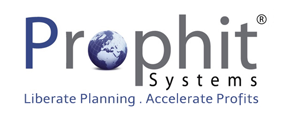DISASTER PROOFING YOUR BUSINESS

It is not only our personal health that is at threat from the deadly COVID-19 virus, it’s also our businesses and livelihoods that this silent killer has under attack.
We have already seen the first wave come through, wiping out the travel and tourism sector in a heartbeat, whilst crippling thousands of businesses across the country.
One area in which this virus has struck has been at our capacity to have product to sell, with a recent survey from the Institute for Supply Management revealing that 75% of global product supply chains have been impacted by COVID-19.
The virus has delivered a stinging lesson to those manufacturers and distributors who are able to survive, that they must change how they have done business in the past to protect their supply chain in the future.
- – They must source geographically separate suppliers for their critical materials and products
- – They must have processes in place to ensure those suppliers are nurtured with enough regular volume to remain engaged and responsive
Of the many businesses I have talked to recently most have been distracted with needing to mobilise their management team to work from home, respond to their boards demands to cut all spending immediately, and their customers’ demands for continuity of supply.
In short, most businesses are scrambling!
This has created opportunity for businesses that are able to adapt quickly to the constantly changing global situation.
One of our customers who makes the aluminium beverage cans for the Australian beer and soft drink market has been one of those quick adapters.
With the whole family home every day of the week, Australian families are buying more cans of drink than ever before, with Australian breweries now switching production from kegs to cans, as the sale of “Quaran – tinnies” goes through the roof.
All of this has pushed demand for aluminium cans up to look more like Christmas holidays than a typical April, proving that in every crisis, some win, whilst many others lose.
Through frequent demand reviews our client has been able to adjust their forecasts as do their customers,to meet the demand of businesses such as Lion Nathan, Asahi, Coca-Cola etc.
With the Alcoa plant at Point Henry closed, the beverage can market has had to source their aluminium from overseas, from locations geographically diverse as China, Africa, Malaysia, America and Saudi Arabia.
To manage the complexities of supply from different regions, lead-times and price rebate structures requires monthly supply planning reviews, where you can clearly see how much volume each mill is getting, and how that will impact their overall prices.
Managing global supply at this moment is as volatile as I have seen in my 30 years of manufacturing experience.
Whilst China is beginning to ramp back up to full speed, other parts of the world are in lock down, with uncertainty on when full or even partial production will resume from all corners of the globe.
Australian businesses that are still operating are finding themselves in a weekly, and at times, daily dance with their latest supply and demand information resembling an out of control Rhumba.
To cope with the constant changing supply patterns and the unique difficulties in importing product from regions such as Africa, these businesses need to understand instantly and confidently how much extra demand they can service, what their response measures will be if demand surges further, or if other supply lines become disrupted.
These companies had not boxed themselves into one supply line, they have been creative and right now it is paying off for them.
Running out of toilet paper due to panic buying was slightly amusing and I like most laughed at the many memes poking fun at the hoarders, and with 18-month supply of 3 ply in the community, there must be sheds full of the stuff.
What I did not find as amusing was the same panic buying of Ventolin, a life-saving medicine for asthma patients, which left chemists with no stock and no notification of when they will get more.
This medicine is made at the GSK factory in South Carolina, and with a spike in worldwide demand for the drug, has left the limited source supply line unable to respond.
It is my view that the lesson businesses will have learned from this crisis is that we have hit the peak of globalisation and will post-virus stand on the cusp of a renaissance in locally sourced supply.
Only last week the South Australian and Federal governments awarded an Australian packaging company a contract to make 145 Million masks for use in Australian hospitals.
This is a new product range for Detmold, and with some capital equipment installed in their Brompton factory, will see 160 jobs added to the local community.
I applaud this contract and expect to see that as the dust settles on the COVID-19 crisis that more businesses will be aware of the importance in having reliable and responsive local suppliers that can help assure the needs of our community are served.
By including local production in your supply chain solution, it will not only create jobs, help reignite the economy, but will also help future proof you from the next time the world shuts down.
Tim Gray, Managing Director, Prophit Systems.
Connect with Tim on LinkedIn

